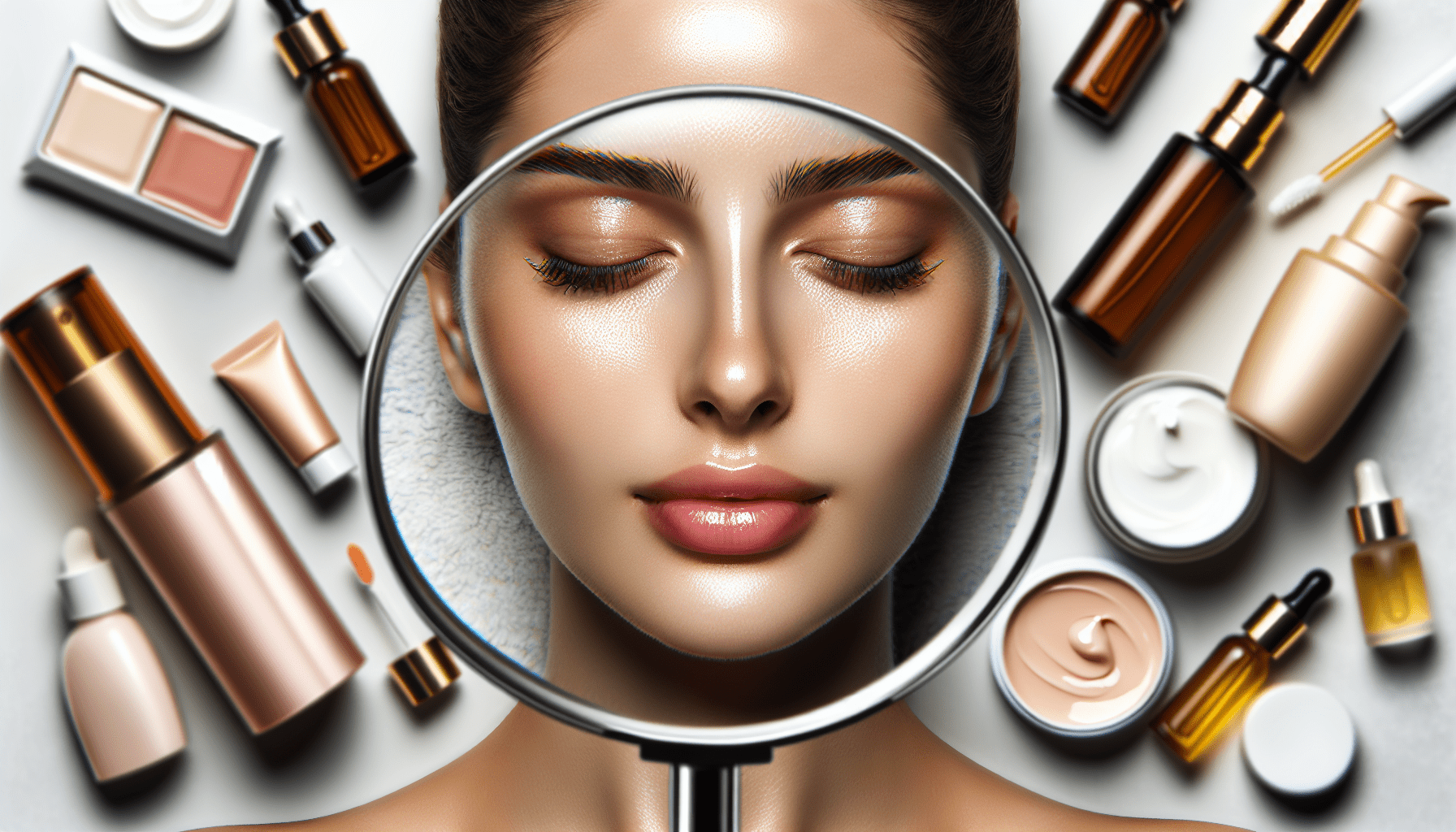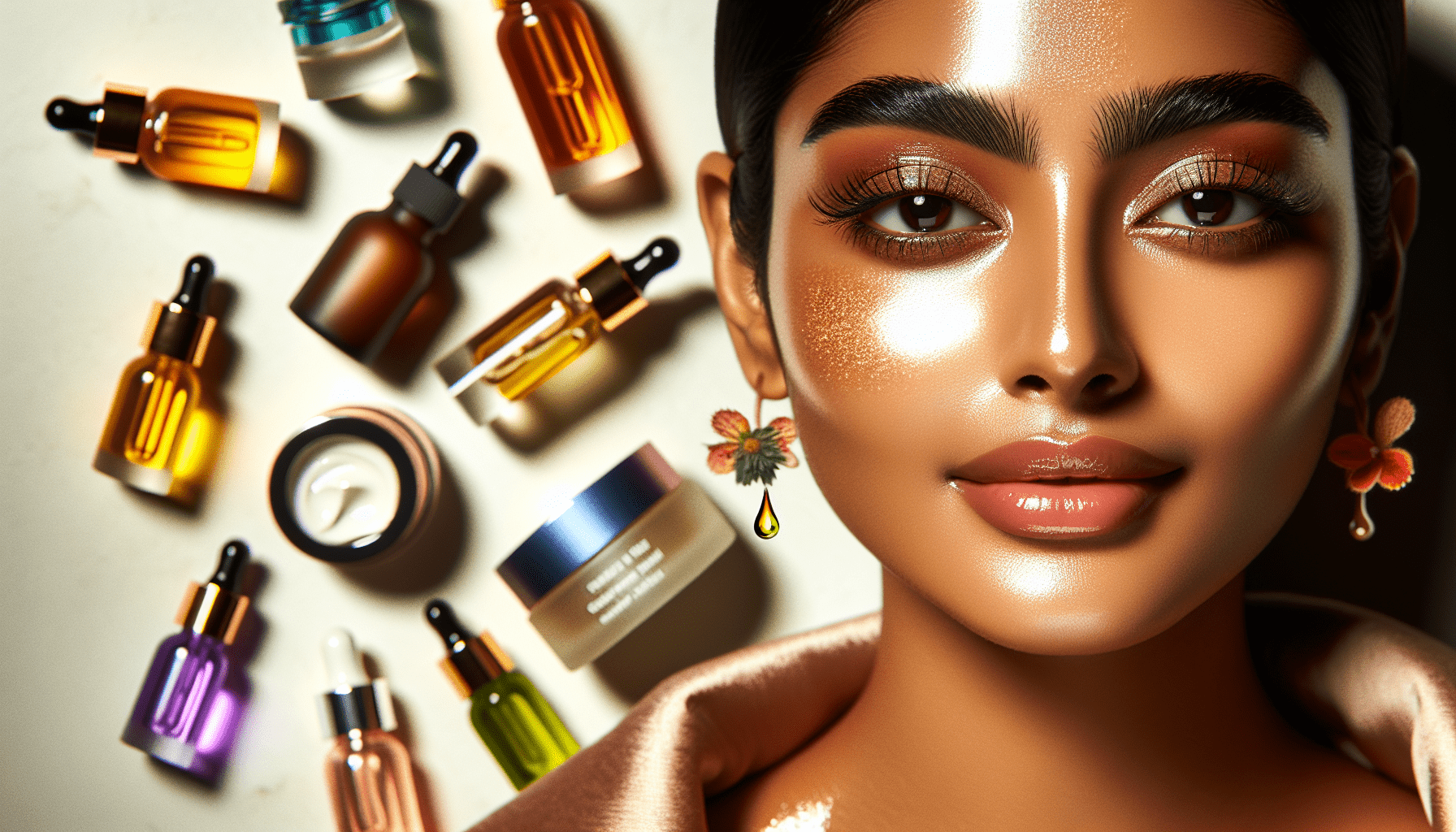Have you ever wondered if some of the skincare advice you’ve heard is actually true or if it’s just another myth in the world of skincare? It’s easy to get caught up in the whirlwind of beauty tips and tricks, especially when everyone seems to have an opinion about what you should be applying to your skin. In a world overflowing with advice, distinguishing between fact and fiction can be as elusive as the perfect moisturizer for your unique skin type. Today, let’s uncover a few misconceptions that might actually be doing your skin more harm than good.

Myth 1: Expensive Products Are Always Better
You might think that breaking the bank on skincare products means you’re getting the best for your skin. After all, the high price tag must mean that it contains rare ingredients or is formulated by experts, right? Unfortunately, that’s often not the case.
The Reality Behind Price Tags
Price does not necessarily equate to quality or effectiveness when it comes to skincare. Many factors influence the cost of a product, such as branding, packaging, and marketing costs, rather than just the quality of the ingredients. Some affordable products have been proven to work just as effectively, if not better, than their pricier counterparts. It’s important to focus on the ingredients and how they suit your skin’s needs rather than the brand name.
What to Focus On Instead
When shopping for skincare, prioritize:
- Ingredients: Look for active ingredients known for their effectiveness, like retinoids, vitamin C, and hyaluronic acid.
- Skin Type: Choose products formulated for your specific skin type, whether it’s oily, dry, combination, or sensitive.
- Reviews and Recommendations: Research and read reviews from other users with similar skin concerns.
Myth 2: Natural Ingredients Are Always Safe
Hearing that something is “natural” might make you think it’s automatically safe and nourishing for your skin. However, not all natural products are created equal, and some could actually be irritating or harmful.
Understanding Natural Ingredients
Natural ingredients can indeed offer great benefits, but they can also be potent allergens or irritants for some people. Just like synthetic products, natural ingredients need to be researched and tested on your skin. Essential oils, for example, are natural but can cause significant irritation or allergic reactions in some users.
Be Informed Before Use
Remember these points:
- Patch Test: Always do a patch test with a new product to see how your skin reacts before applying it to your entire face.
- Check for Allergens: Identify any ingredients that you might be allergic to, even if they’re natural.
- Read Labels Carefully: Natural doesn’t mean preservative-free. Ensure you understand what the other components in a “natural” product are doing for your skin.
Myth 3: Oily Skin Doesn’t Need Moisturizer
It might seem logical to skip moisturizer if you have oily skin — why add more moisture when there’s already plenty? Ironically, this can lead to even oilier skin or other issues.
The Role of Moisturizers
All skin types need moisture to stay healthy, including oily skin. Depriving your skin of moisture can cause it to produce even more oil to compensate, leading to clogged pores and breakouts. Moisturizers help to maintain the skin’s barrier function and hydration.
Choosing the Right Moisturizer
If you have oily skin, look for:
- Lightweight Formulas: Opt for gel-based or water-based moisturizers that absorb quickly.
- Non-Comedogenic Labels: These products are less likely to clog pores.
- Mattifying Ingredients: Ingredients such as silicones can help absorb excess oil and reduce shine.
Myth 4: The Higher the SPF, the Better the Protection
You’ve probably heard that slathering on the highest SPF available is the ultimate protection against sun damage. While SPF is critical, it’s not the whole story.
Understanding SPF Numbers
SPF, or Sun Protection Factor, measures protection against UVB rays, which are the primary cause of sunburn. However, it doesn’t account for UVA rays, which contribute to premature aging and skin cancer. A higher SPF number does offer more protection, but the difference becomes marginal after a certain point.
Comprehensive Sun Protection
Ensure you’re fully protected with these steps:
- Use Broad-Spectrum Protection: Choose sunscreens that protect against both UVA and UVB rays.
- Reapply Regularly: Reapply every two hours, and after swimming or sweating.
- Don Protective Clothing: Wear hats, sunglasses, and long-sleeved shirts when in direct sunlight for extended periods.

Myth 5: You Should Exfoliate Daily
Exfoliating can reveal healthy and glowing-looking skin by removing dead skin cells. But more isn’t always better in this case.
The Truth About Exfoliation Frequency
Over-exfoliating can lead to irritation, increased sensitivity, and even damage to your skin barrier, making it susceptible to infections and pollutants. Your skin needs time to replenish itself naturally.
Finding the Right Balance
Consider these guidelines:
- Skin Type Consideration: Determine exfoliating frequency based on your skin type. For example, oily skin can handle more frequent exfoliation than dry or sensitive skin.
- Choose Gently Formulated Products: Opt for chemical exfoliants like AHAs or BHAs that don’t employ harsh scrubbing.
- Pay Attention to Your Skin: Adjust the frequency based on how your skin responds. If it feels irritated or overly tight, reduce the frequency.
Conclusion: Navigate Skincare with Knowledge
In a realm where misinformation can quickly spread, debunking myths is essential for maintaining healthy skin. These misconceptions can lead you down the wrong path, diverting you from caring for your skin as it deserves. Remember, skincare is not a one-size-fits-all approach. It requires a tailored regimen that considers your unique needs and preferences. By being informed and thoughtful about your skincare choices, you’ll pave the way for a healthier, more radiant appearance.

